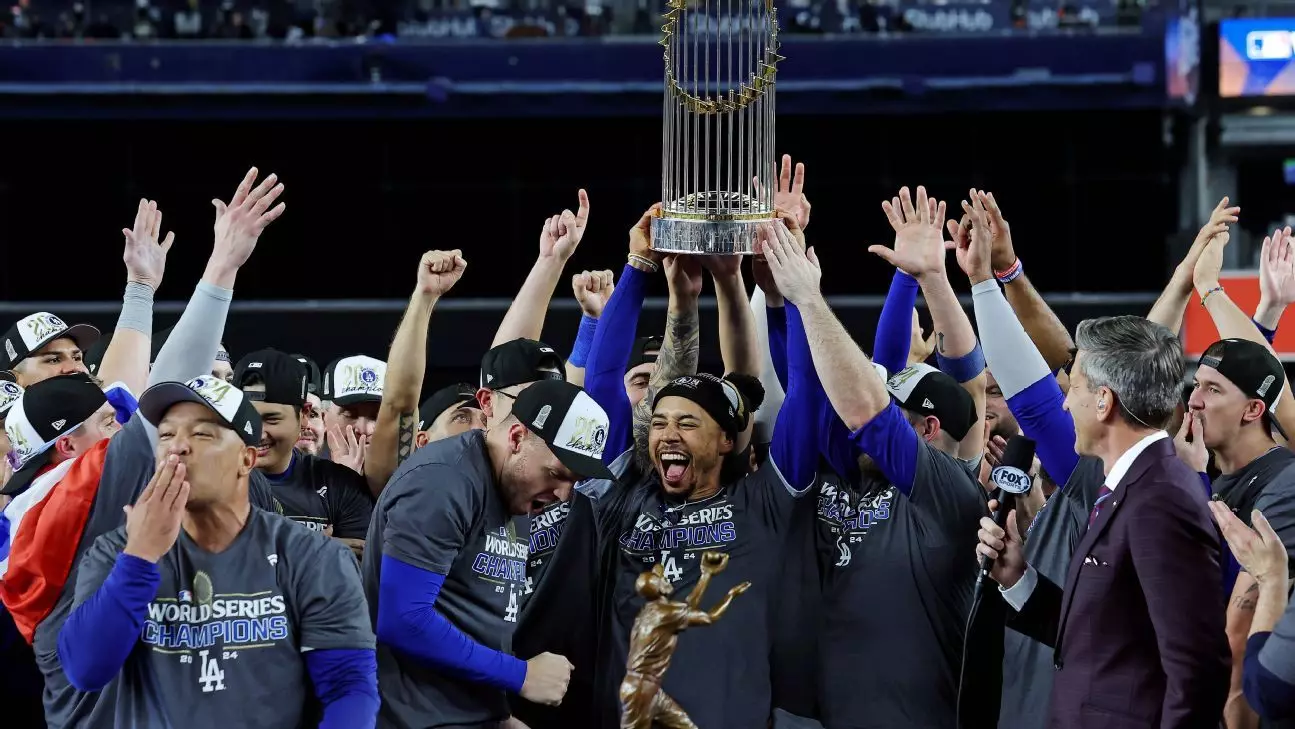The Los Angeles Dodgers, fresh off their well-deserved World Series victory, have accepted an invitation from the White House for a ceremonial visit on April 7. This honor, while rooted in tradition, serves as a stark reminder of the intersection between sports, politics, and social issues. As the team prepares for the celebration—with their three-game series against the Washington Nationals looming—this event is not merely a jubilant acknowledgments of sports prowess but also reflective of a complex narrative tied to both historical significance and current controversies.
In announcing the visit, manager Dave Roberts expressed his gratitude, emphasizing the honor involved in receiving such an invitation from the highest office. For any sports team, celebrating a championship in the White House signifies acknowledgment that transcends athletic achievement; it becomes a cultural touchstone that can spur dialogue around broader social contexts. However, this year, the visit is peppered with layers of scrutiny and historical reflection, particularly concerning the legacy of Jackie Robinson, a true pioneer of baseball and civil rights.
Jackie Robinson’s Legacy and the Echoes of Current Politics
Jackie Robinson, whose story is emblematic of resilience and the fight for equality, is now at the center of a controversy that casts a shadow over the Dodgers’ impending visit. The recent removal of a story detailing Robinson’s military service on the Department of Defense’s website reflects an alarming trend wherein narratives that promote diversity, equity, and inclusion (DEI) are systematically excised from public discourse. This deliberate omission, amid President Trump’s purported initiatives to purge the federal narrative of such themes, raises critical questions about how much societal progress can withstand political tides.
Roberts, who has consistently advocated for diversity within Major League Baseball, found himself caught in this intricate web when informed about the removed content. His response, which underscored both surprise and relief upon learning that the page was restored, hints at a broader ongoing struggle within the sports community regarding representation and acknowledgment of historical figures like Robinson. In many ways, Robinson’s journey from a second lieutenant in the Army during World War II to breaking baseball’s color barrier transcends the confines of sport, making his legacy a crucial element of American history that demands recognition—especially from institutions claiming to uphold democratic values.
The Managers’ Evolving Perspectives on Political Engagement
Roberts’ personal evolution regarding political engagement is noteworthy, especially when considering his earlier stance against visiting the White House during the Trump presidency. The coach once declared he would not attend; however, his demeanor shifted upon the recent invitation, acknowledging the importance of holding office despite differing political viewpoints. This transformation reflects a growing understanding that while personal beliefs may differ from those of leadership, the symbolism of an invitation remains significant, inviting dialogue about unity and respect, no matter the political climate.
In this regard, Roberts represents a generation of athletes and coaches who navigate a complex landscape interwoven with activism and institutional recognition. The self-imposed exile from the ceremonial honors of the White House has given way to a nuanced dialogue where personal testimony intersects with collective achievement. By accepting this invitation, Roberts not only honors his players’ hard work but also opens the door for critical discourse on sports’ role in broader societal issues.
The Intersection of Philanthropy and Political Responsibility
Notably, the Dodgers’ ownership group, including Mark Walter and the iconic Earvin “Magic” Johnson, has taken a proactive stance in addressing community issues, such as disaster recovery efforts following the recent wildfires in California. Their commitment of $100 million towards philanthropic initiatives symbolizes a recognition of their social responsibility that transcends the baseball diamond and reaches into the very fabric of the Los Angeles community. The juxtaposition between their dedication to combating tangible socio-environmental challenges and the uncertainty surrounding the political climate adds further depth to their White House engagement.
As the Dodgers prepare to visit the White House, the layers of celebration become increasingly complex. The visit signifies more than a mere acknowledgement of their championship; it speaks to broader themes of equality, accountability, and community responsibility. In an era where sports and politics are inextricably linked, the Dodgers’ upcoming journey embodies a multifaceted dialogue that extends well beyond the confines of a baseball field, inspiring future conversations around legacy and leadership.

